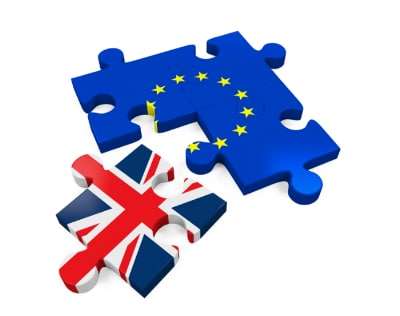The Volokh Conspiracy
Mostly law professors | Sometimes contrarian | Often libertarian | Always independent
UK Supreme Court rules Brexit requires vote by Parliament

Earlier today, the Supreme Court of the United Kingdom ruled that the British government cannot initiate the "Brexit" process of leaving the European Union without first getting the approval of Parliament. By an 8-3 majority, the justices affirmed a lower court ruling that the government cannot invoke Article 50 of the Lisbon Treaty and begin the process of leaving the EU without first getting authorization from a vote by Parliament. The full text of the decision is available here. The June 2016 Brexit referendum does not, according to the court, give the government the power to initiate Brexit on its own.
The decision is a legal setback for pro-Brexit forces and for Theresa May's Conservative Party government. It is also an important milestone in the history of Britain's unwritten constitution, one that will probably be debated by jurists and legal scholars for years to come. But is highly unlikely to prevent Brexit from happening. The government will almost certainly get the vote it needs, as it will have the backing of the majority Conservative Party and much of the opposition Labor Party as well.
Importantly, the court unanimously rejected claims that Brexit requires the approval of the "devolved" regional parliaments of Scotland, Wales, and Northern Ireland. Scotland voted overwhelmingly against Brexit in last year's referendum, and might well have tried to block Brexit, if given the opportunity to do so.
Assuming the parliamentary vote goes as expected, Britain and the European Union will enter into negotiations on an exit agreement. At this point, it seems likely they will end up with "hard Brexit," an outcome under which Britain leaves the EU without any broad agreement on free trade or reciprocal freedom of movement between the two jurisdictions. The May government is unwilling to agree to the EU's probable terms for retaining access to its single market, which, among other things, include continued freedom of movement for EU citizens. For its part, the European Union seems unwilling to give Britain a favorable deal, lest it encourage further exit by other states.
If "hard Brexit" does occur, it will be a major setback for free trade and freedom of movement in Europe and the UK, potentially inflicting considerable damage on the UK economy, and lesser but still notable damage to the remaining EU states. Among other things, EU migrants are sigificant contributors to the British economy and government revenues. Britain could try to offset some of the damage by negotiating individual trade agreements with various nations. But it will be hard for it to replicate the EU's network of agreements with numerous states around the world, and Britain's negotiating leverage is likely to be less than that of the EU.
The "Norway option," once touted as a free-market alternative to EU membership by some Brexit supporters, no longer seems like a live option. Even if the British government decides to pursue the idea, it could well be vetoed by Norway itself, which has the power to prevent Britain from rejoining the European Free Trade Association. EFTA membership is necessary for Britain to have the same free trade arrangements with the EU enjoyed by Norway and other members of the former organization.
On the domestic front, the May Government seems set to use Brexit as an opportunity increase government intervention into the economy and institute policies favoring politically influential domestic industries, that might previously have been blocked by the EU. Should the opposition Labor Party come to power in the next election, economic policy will be even more statist, as the party is headed by Jeremy Corbyn, the most socialistic Labor leader in many years.
"Hard Brexit" may also to lead to another independence referendum in Scotland. Unlike in 2014, the pro-secession side might win this time, as the vast majority of Scots would like to stay in the EU.
All of this undercuts the claims of pro-Brexit libertarians and others who hoped that Brexit would lead to economic liberalization in Britain. At this point, the opposite result seems far more likely, as feared by libertarian critics of Brexit such as Johan Norberg, Jacob Levy, and myself.
But it is too early to reach definitive conclusions. Perhaps the May government, the European Union, or both will moderate their positions. The two could still reach a deal under which free trade and migration will be preserved, at least to some substantial degree. The May government will face a more difficult parliamentary test when Parliament has to vote approve any deal reached between the UK and the EU. That prospect might incentivize May, or a successor, to change positions or (far less likely) to rethink the whole idea of leaving the EU entirely.
If Brexit leads to Scottish secession, an independent Scotland might be forced to adopt more free market economic policies, as occurred in the case of Slovakia. Like Scottish secessionists relative to the UK today, Slovak independence advocates wanted a bigger welfare state and more interventionist policies than were politically feasible in a united Czechoslovakia. But the economic realities of independence pushed them in a different direction. Scottish independence could also result in an economically freer "rump" United Kingdom.
Much remains uncertain. At this point, however, "hard Brexit" seems a very likely scenario. If it comes to pass, it may well be good news for economic nationalists and far leftists who are hostile to free trade and migration. It is a far less happy prospect for those who want to see a freer and more prosperous Britain and Europe.


Show Comments (0)